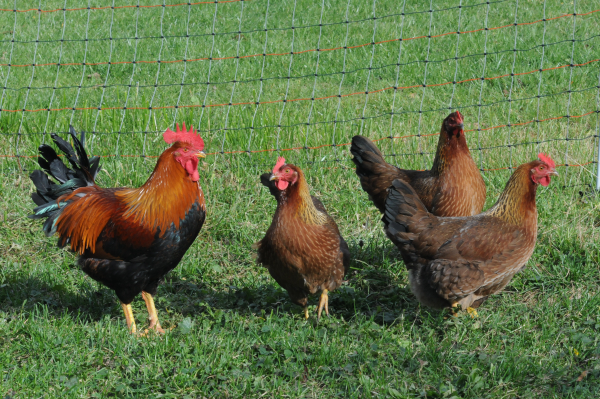
|
Keeping a small flock of chickens at home to provide eggs and meat has become increasingly popular, but many first-time small-scale poultry farmers are discovering that several species of wildlife like the taste of chicken as much as we do. The Vermont Fish and Wildlife Department urges poultry owners to use electric fencing and follow other precautions to protect their birds from predation.
“We are receiving reports about bears, foxes, raccoons, fisher, coyotes, skunks, and bobcats preying on chickens,” said Jaclyn Comeau, Vermont’s bear biologist. “Many of the calls will be coming from people who are new at keeping chickens and who do not provide sufficient protection for their birds.”
Comeau says bears require a significant amount of effort to deter once they have learned to feed on chickens and their food. She says it is important that Vermonters take a more proactive approach and protect chickens before they have a problem.
Comeau urges people to keep their chickens contained inside electric net fencing and to make sure any wire fencing is secure. Use of one-quarter-inch hardware cloth, especially along the bottom of an enclosure will block most small predators. Weasels can get through a one-inch opening. The electric netting, however, is good extra protection even outside the wire netting – especially against black bears which are strong enough to break into most unprotected chicken coops. Several types of electric net fencing are available. The netting is portable and can easily be used with moveable chicken pens.
Here are additional tips to help keep your chickens safe:
Vermont Fish and Wildlife has more helpful information about Living with Black Bears on their website. If you are having a problem with bears, please fill out the Bear Incident Report form on that page.
-30-
Media Contacts: Jaclyn Comeau 802-461-5620; David Sausville 802-324-4206